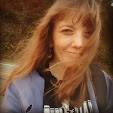Write a story about the time you left your sister’s jacket on the bus, and about the girl who found it, and how she wore it to the fair, even though it was much too big for her. Include details: how the seams enclosed her in a cave of sagging navy cotton, and how she filled the pockets with barrettes and Jolly Ranchers. Tell us about how the heat melted the Jolly Ranchers onto the barrettes, and how the girl, let’s call her Sylvia, dug a cocoon of blue raspberry stickiness away from the clip that held her bangs away from her face. Show us her expression when the candy came away clean and she could see again.
Write a research paper, if you can, about the difference between Ramen noodles and Campbell’s chicken noodle soup. Explain the exegesis of both forms of nourishment, and allude to the special ways you can address the inherent salty sameness of their bases. Tell us about the first time you made egg drop soup from that dry crackling package of Ramen and how good it tasted with a dusting of paprika across its skin as it cooled. Explain how, when you need to make more than one meal out of something, such a soup can become a casserole of sorts overnight, and how black pepper, when dusted across the surface of this second dish, works its way down into the soggy filaments of noodle, giving the whole thing a deceptive saline freshness for just a moment.
Write a poem about the imaginary creature you built from other animals you knew, back in the fourth grade. Tell us about the fine silver veins that flowed across the wings of the animal and how it had a voice, but one seldom heard, like yours. Tell us about your brainchild's feet, how nimble and creaturely they were, and about the animal’s tail. Tell us how it looped through your dreams as you first imagined this beast, and how it danced and darted like the tail of the Cowardly Lion, off balance and in rhythm with its own inner ley lines, a barometer of all the fears and energies its owner carried through the world. Give it a name, and have it roar.
Write a descriptive paper about a flamingo. Explain the flamingo’s perspective on life and show us all its needs and problems. Let us feel what it’s like to have knees that bend backwards. Have us see the river water it lives in through your new flamingo eyes. Take us with you when you fly away, and have us reach the horizon along with you, a part of one big wing, a rising of color from mud into sky, a departure, a choice, a leavetaking, and a joining, a cacophony of birdvoice dangling down along the joints of flying legs so that all the other animals still hear it, long after the migrating flock has left them behind.
lks 2007










